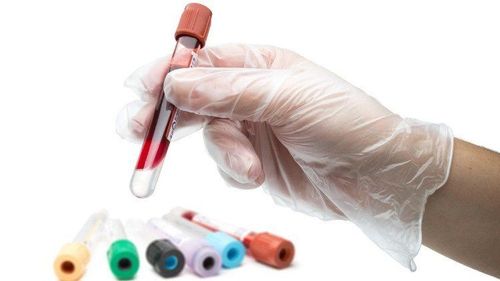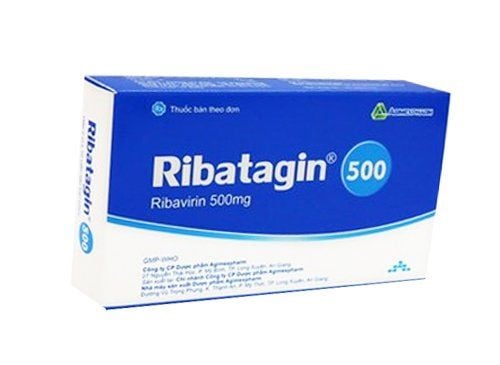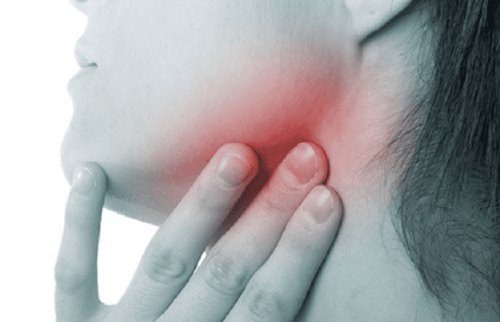This is an automatically translated article.
The article is expertly consulted by Gastroenterologist, Department of Examination & Internal Medicine - Vinmec Hai Phong International General Hospital.Salivary gland inflammation occurs when the salivary glands or salivary tubes become infected with bacteria. The infection can lead to decreased salivation due to blockage or inflammation of the salivary tubes, collectively known as salivary gland inflammation.
1. Diagnosis of salivary gland inflammation
1.1. Symptoms of salivary gland inflammation The following symptoms may appear when having salivary gland inflammation, patients should see a doctor for the most accurate diagnosis. Symptoms of salivary gland inflammation can be very similar to many other diseases. Symptoms include:Salivary glands in the ears or under the jaws on both sides are enlarged, sometimes deforming the face, face bulge, neck, sagging chin. The skin of the parotid gland is swollen, shiny, hot to the touch, not red and not concave (for viral salivary gland inflammation) or red and concave (for bacterial salivary gland inflammation). Small, thick saliva. Stenon duct foramen is inflamed red or purulent when stroked along the duct (in case of bacterial cause). Swollen lymph nodes in the jaw Frequently lose taste or feel bad in the mouth. Unable to open mouth wide. Discomfort or pain when opening the mouth or when eating. Dry mouth. Pain in the mouth. Facial pain. Signs of infection such as fever or chills. Seek immediate medical attention if your salivary gland inflammation is accompanied by a high fever, difficulty breathing or swallowing, especially if your symptoms worsen. These symptoms require medical attention.
1.2. Diagnostic tests Blood tests: Leukocytes decreased, neutrophils decreased (for viral causes) and increased (for bacterial causes), blood and urine amylase were increased. Ultrasound: The first and important diagnostic tool in soft tissue lesions of the head, face and neck, has a role in diagnosing inflammatory salivary gland inflammation. In this technique, it is necessary to examine the entire neck area to detect associated lesions.

2. Complications of parotid salivary gland inflammation
Complications of salivary gland inflammation are uncommon. If salivary gland inflammation is left untreated, pus can accumulate and form abscesses in the salivary glands.Salivary gland inflammation caused by benign tumors can cause salivary gland enlargement. Melanoma can grow very quickly and cause loss of movement in the affected area of the face. This may affect part or all of this area.
Patients may also experience complications if the initial infection spreads from the salivary glands to other parts of the body, including a bacterial skin infection (cellulitis) or Ludwig's pharyngitis (a the form of cellulitis that occurs in the lower part of the mouth)
Trắc nghiệm: Bài kiểm tra chỉ số trí tuệ cảm xúc (EQ) của bạn
Chỉ số trí tuệ cảm xúc Emotional Quotient (EQ) là một chỉ số dùng để nói lên trí tưởng tượng, đánh giá và cảm xúc của một con người. Hãy làm bài trắc nghiệm sau để biết chỉ số EQ của bạn là bao nhiêu?
Nguồn tham khảo: webmd.com
3. Treatment of inflammation of the salivary glands
Treatment depends on the severity of the infection, the underlying cause, and the symptoms the patient is experiencing, such as swelling or pain. Antibiotics may be used to treat bacterial infections, pus, or fever. Pressure drive - the car will probably be aspirated.Most cases of salivary gland inflammation do not require surgery. However, surgery will be needed in cases of chronic infections or recurrent infections. Although uncommon, surgery will likely include partial or complete removal of the parotid gland or removal of the submandibular gland.
Home treatment includes:
Drink 2 – 2.5 liters of water per day to stimulate the salivary glands and keep the salivary glands clean. Massage the damaged salivary gland. Apply warmth to the affected area; Gargle with warm water, mixed with a little salt. Suck or suck on sour lemons or sugar-free lemon candies to stimulate saliva production and reduce swelling.

4. Prevention of parotid salivary gland inflammation
The best way to reduce the risk of salivary gland inflammation is to drink plenty of water and practice good oral hygiene, including proper brushing and flossing at least twice a day.Please dial HOTLINE for more information or register for an appointment HERE. Download MyVinmec app to make appointments faster and to manage your bookings easily.













